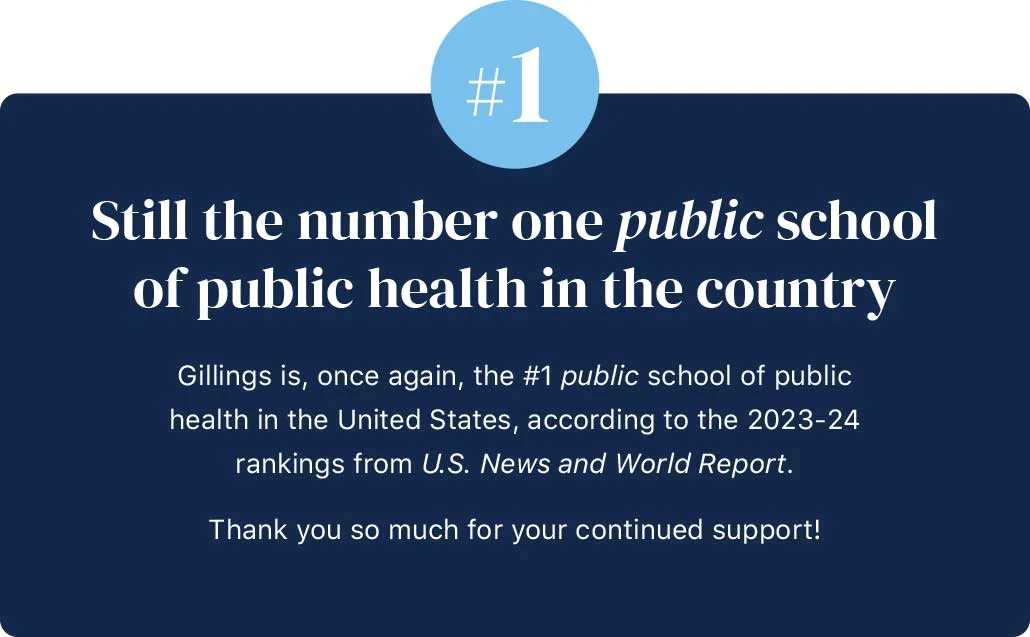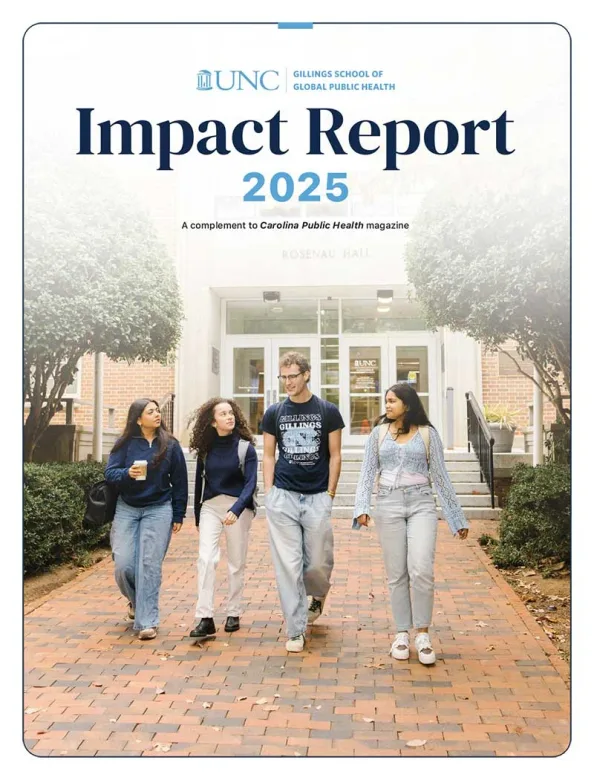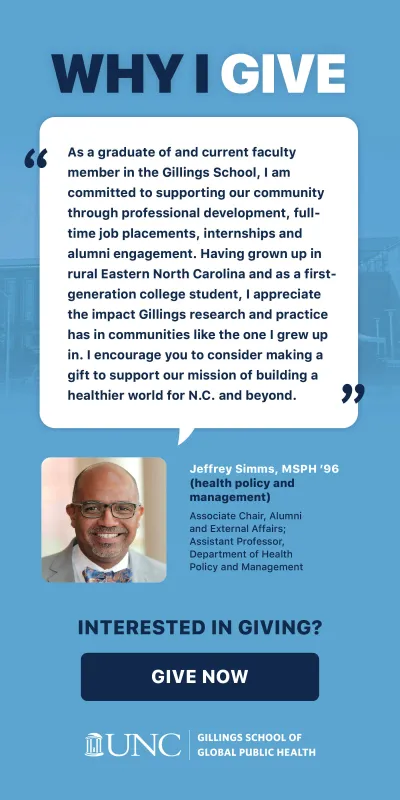Rotimi Kukoyi wants to be a bridge builder in public health
Rotimi, a Rhodes and Morehead-Cain Scholar and senior studying health policy and management, aims to bridge medicine, policy and community trust to make health equity sustainable.
Rotimi Kukoyi shares how lived experience, equity-focused thinking, and a passion for bridging medicine, policy and community shape his path in public health.
What’s your role in public health?
I’m a senior studying health policy and management at the Gillings School. I want to be a physician and policy maker, and I chose public health because it’s highly interdisciplinary. In my future career, I see myself working in clinical spaces, insurance, hospital administration, and local and federal policy — across the health care ecosystem. I want to combine perspectives from them all to approach public health challenges in dynamic ways.
Can you describe your focus area in one sentence?
I want to be a bridge builder.
Right now, I see chaos at the federal level and know we must rebuild trust in public health. Health moves at the speed of trust, and people are full of doubt.
I grew up moving between four states — Iowa, California, South Carolina and Alabama — which exposed me to diverse social and political climates. That taught me the value of forming relationships with all kinds of people.
It’s easier to condemn than to understand. Empathy is essential, and it’s strengthened by first-hand experiences — living and witnessing things, not just reading about them. That’s why I want to occupy many spaces in public health. I want to look at the people I’m serving and honestly say, “I do understand.”
What brought you to public health?
I’ve been interested in medicine since ninth grade. COVID arrived when I was in tenth grade, the first time I’d heard of public health. In my last two years of high school, I did a capstone project on education and how socioeconomic factors impact access and outcomes.
My interest was based on lived experience: I was the only Black male in all seven of my Advanced Placement classes, even though Black students made up 30% of my high school — the largest in Alabama.
Living through a pandemic showed me that health and well-being are affected by the same social determinants that impact education.
Can you describe a time when you’ve pivoted in your public health career?
As a Black male in the South, I’ve always been passionate about health equity. More recently, I’ve realized I want to improve equity by driving innovation in health financing and care delivery. This approach requires making public health reforms financially viable. That’s how we empower health systems to move equity from a value to a sustainable practice.
We’ve identified social determinants of health, but solutions remain elusive. Why? Some say you must fix housing, education and environmental issues before public health can be equitable, and those are huge tasks.
Instead of tackling these separately, I believe we should redesign incentives within health systems, shifting focus from health care to overall health. Traditionally, our model rewards treating sickness over promoting health.
I’m excited about shifts from fee-for-service to value-based care, which rewards providers for outcomes and quality rather than volume. I’m inspired by technology and care management approaches — enabled by value-based incentives — that prioritize prevention and reduce unnecessary procedures. These trends offer actionable pathways toward equity today.
Who are you when you’re at home?
I stay busy! I’m a Rhodes and Morehead-Cain Scholar, two-time Jeopardy contestant, and UNC’s senior class president. Friends call me a workaholic, but I love being active and lazy in turn.
Sometimes, I’m playing intramural soccer or training for the Potomac River Run Marathon. Other times, I’m binge-watching shows like Severance, Hacks and Derry Girls.
Community is a top value. I’ve had generous mentors, and I believe meritocracy is a myth; achievement is talent plus serendipity. I try to pay it forward by sharing college admissions and scholarship advice on TikTok, where I have about 39,000 followers. One viral video about my own scholarship success — more than $2 million across 11 schools — drew thousands of questions. To help, I created videos and launched meritscholarships.org, a national directory of merit-based scholarships.
———
More Pivot interviews:
sph.unc.edu/comm/the-pivot




